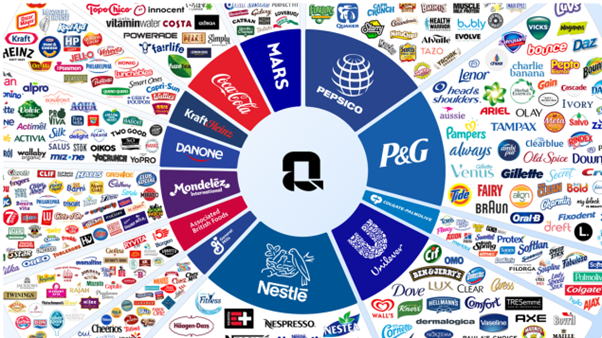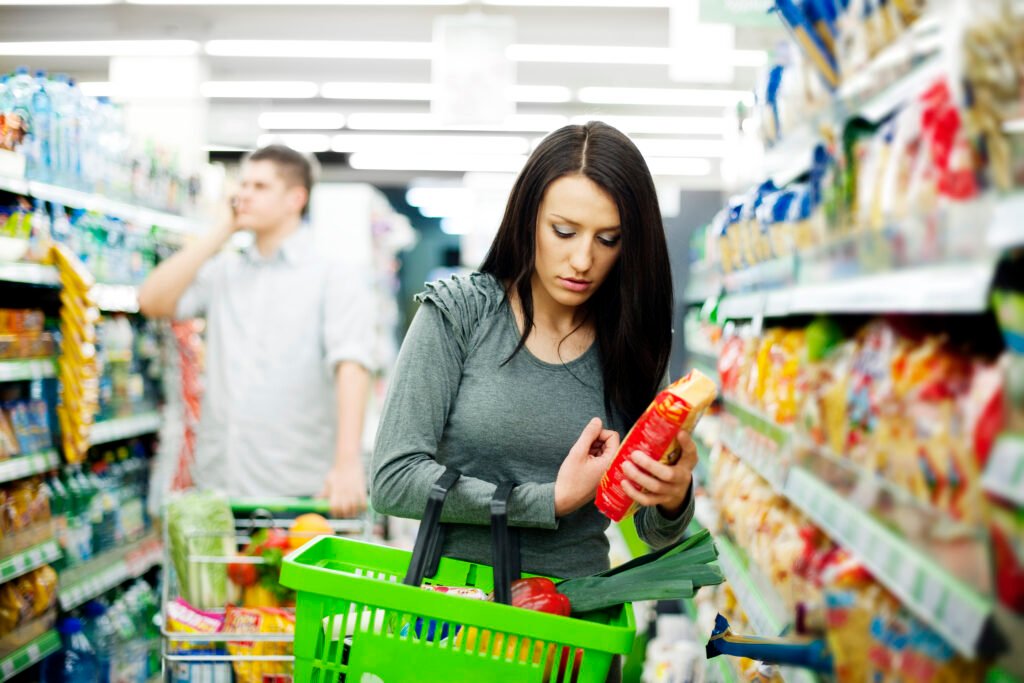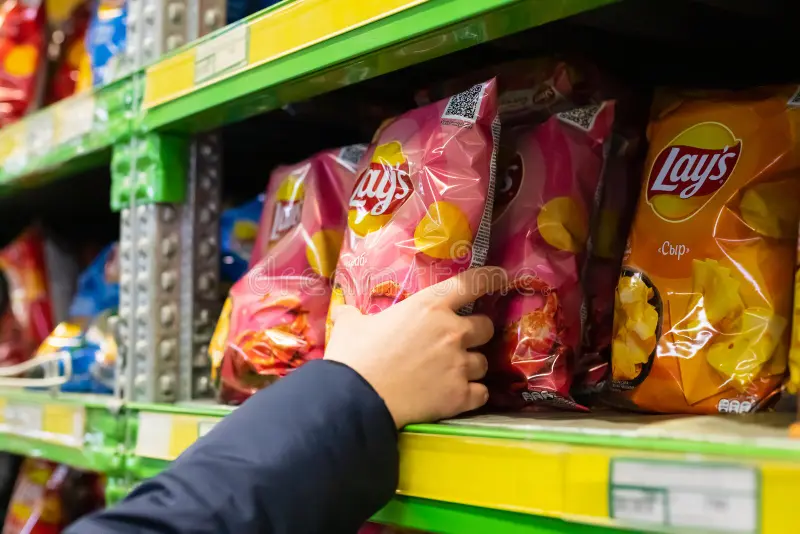
When you think about the products that make your daily life easier, the chances are that they come from FMCG companies. These are the businesses that create and deliver the everyday essentials people rely on, whether it is toothpaste and shampoo, or packaged food and soft drinks. The fast-moving consumer goods industry is one of the most important sectors in the world because it connects with billions of people every single day.
So, what are these FMCG companies? In simple terms, they are businesses that produce fast-moving consumer goods. These goods are items that people buy frequently, use quickly, and replace often. They are affordable, available almost everywhere, and form a crucial part of our routines. Think of your morning cup of coffee, or the snack you grab during a busy day, or even the detergent you use to wash clothes. All of these are examples of FMCG products.
The reason FMCG companies matter so much is because of their constant demand. Luxury goods are something that people purchase occasionally, but FMCG products are used daily. That makes this sector one of the most stable industries, even when the economy is unpredictable. For businesses, this stability is essential because it ensures consistent sales and steady growth. As for consumers, it means access to reliable products at affordable prices.
It is also useful to understand how FMCG compares with consumer packaged goods, or CPG. While both terms describe products people use regularly, FMCG typically refers to items that move off shelves quickly, while CPG can also include products that last a little longer. However, the difference is subtle, and in most cases, the two overlap.
Understanding Fast-Moving Consumer Goods (FMCG)
The FMCG sector is defined by a few key characteristics that separate it from other industries:
- High demand: Products are purchased in large volumes and on a regular basis.
- Low cost: Most items are affordable for almost every income level.
- Short shelf life: Goods are either perishable, like food, or consumed quickly, like personal care products.
FMCG vs Consumer Packaged Goods (CPG)
The conversation around FMCG and CPG often comes up because they sound so similar. FMCG focuses more on fast turnover, meaning products are bought and replaced rapidly. CPG is a broader category that can include items with slightly slower turnover. For example, while bottled water is clearly an FMCG product, a cleaning product that lasts for months may be classified as CPG. Still, most global FMCG companies operate across both areas.
Role of FMCG in the Global Economy
The importance of FMCG in the global economy cannot be overstated. This sector generates trillions of dollars in revenue each year and employs millions of people across industries. From manufacturing plants and packaging companies to distributors and retailers, FMCG companies create entire ecosystems of work and opportunity.
Urbanization, rising incomes, and lifestyle changes continue to drive demand. For businesses, FMCG products provide consistent revenue streams. For governments, the sector contributes to GDP growth and trade. And for consumers, these products are nothing short of indispensable.
Key Categories of FMCG Products
The FMCG industry spans several product categories, each serving essential needs.
1. Food and Beverages
This is the largest and most visible category. It includes everything from packaged snacks and dairy products to carbonated drinks and bottled water. Food and beverage brands often dominate shopping lists and household budgets. Global FMCG companies such as Nestlé, PepsiCo, and Coca-Cola continue to lead this category, constantly innovating to meet changing tastes and health-conscious trends.
2. Personal Care and Beauty
This category covers soaps, shampoos, skincare, deodorants, and cosmetics. Some of the best FMCG companies in this space are Procter & Gamble, Unilever, and L’Oréal. These brands know how to connect with consumers emotionally, building loyalty through not only product performance but also lifestyle branding.
3. Household Care and Cleaning
Detergents, dishwashing liquids, and surface cleaners are essential FMCG products in every home. This category has grown even more important in recent years as hygiene awareness has risen. Companies like Reckitt Benckiser and Unilever remain global leaders here, offering products trusted by millions.
4. Healthcare and Pharmaceuticals
This category includes over-the-counter medicines, vitamins, supplements, and basic healthcare products. Companies such as Johnson & Johnson and GlaxoSmithKline hold strong positions in this area. While healthcare is its own industry, many FMCG companies bridge the gap by producing everyday health products.
5. Packaged Essentials
This category includes ready-to-eat meals, frozen foods, dairy, and everyday staples. Convenience is the driving factor here. In India, companies like ITC and Amul dominate with products that fit seamlessly into fast-paced urban lifestyles.
Top FMCG Companies and Brands Around the World
When you look at the global landscape, a few names always come to mind when people talk about the best FMCG companies. These include Nestlé, Unilever, Procter & Gamble, PepsiCo, Coca-Cola, and Johnson & Johnson.
Rankings by Revenue and Market Share
Nestlé continues to be one of the largest FMCG companies by revenue, with its portfolio covering everything from infant nutrition to coffee. Procter & Gamble remains dominant in personal and household care, while Coca-Cola and PepsiCo set global standards in beverages.
The Best FMCG Companies Globally
- Nestlé is known worldwide for its food and beverage brands.
- Unilever is a leader in personal care, household products, and beverages.
- Procter & Gamble (P&G) is famous for its household and personal care innovations.
- PepsiCo and Coca-Cola are global giants in the beverage market.
- Johnson & Johnson is a healthcare-focused FMCG leader.
The Best FMCG Brands
Some FMCG brands are basically a part of everyday life. Colgate, Dove, and Nescafé are some of the examples. These brands have succeeded because they are consistent, trustworthy, and constantly adapting to consumer needs.
How Brands Succeed
A strong strategy is needed for any successful FMCG company. Success comes from a mix of quality, distribution, marketing, and adaptability. Companies that can anticipate consumer needs, whether it is a shift toward healthier products or sustainable packaging, usually end up ahead of the competition. For example –
- Unilever -uses its wide global reach while still tailoring its products for local tastes.
- Nestlé – focuses on innovation and adapts its products to match cultural preferences in different markets.
- PepsiCo – has expanded beyond soft drinks into snacks and nutrition-focused products, aligning itself with modern consumer priorities.
Largest FMCG Companies by Revenue
Being among the largest FMCG companies by revenue gives businesses enormous advantages. Scale allows them to negotiate better supply contracts, launch massive advertising campaigns, and maintain competitive pricing.
1. Top Global Leaders
Nestlé, Procter & Gamble, and Unilever are at the top on the list, that consistently generate billions of dollars in revenue. PepsiCo and Coca-Cola follow closely behind, while companies like Johnson & Johnson dominate healthcare categories.
2. Why Scale Matters
The ability to produce at scale allows companies to reach both developed and emerging markets efficiently. It also provides the financial muscle needed to invest in research, and sustainable practices, all of which are critical in today’s market.
Distribution, Supply Chain, and Packaging in FMCG
The backbone of any FMCG company lies in its ability to distribute products quickly and consistently. This is where distribution and supply chain come in handy.
1. Distribution Networks
Without strong distribution, even the best FMCG companies would struggle. Networks ensure products are available in urban supermarkets, local convenience stores, and rural outlets.
2. Supply Chain
A well-optimized supply chain is essential when it comes to efficiency and profitability. FMCG supply chains today are becoming more advanced with the use of digital tools, real-time tracking, and AI-based demand forecasting. These innovations help companies respond quickly to changing consumer needs.
3. Packaging Solutions
Packaging has evolved beyond functionality. Today, it is about sustainability, branding, and consumer convenience. Many FMCG manufacturers are experimenting with biodegradable and recyclable options to align with global sustainability goals.
Emerging FMCG Trends and Sustainability
The FMCG sector never stands still. Consumer expectations and market conditions constantly push companies to evolve.
1. Sustainability
Sustainability is now a priority for global FMCG companies. From reducing plastic waste to ensuring ethical sourcing, brands are working to balance profitability with responsibility. Unilever has made a strong commitment to eco-friendly packaging, while Coca-Cola is investing heavily in recycling initiatives.
2. E-Commerce and Digital Growth
The rise of e-commerce has completely changed FMCG distribution. Consumers are now just as likely to order groceries online as they are to walk into a store. Quick-commerce platforms such as Blinkit and Instacart are making FMCG products even more accessible.
3. Personalization
Another emerging trend is personalization. FMCG brands are always finding new ways to make consumers feel understood and valued with methods such as subscription services, customized product recommendations, or region-specific flavours.
Conclusion
FMCG companies are more than just businesses selling everyday goods. They shape consumer habits, create trusted brands, and influence global economies. From food and beverages to healthcare and household care, the FMCG companies set the tone for the industry.
Names like Nestlé, Unilever continue to lead, while newer players are making their mark through innovation and sustainability. The future of the FMCG sector will be shaped by how well companies adapt to digital growth, meet sustainability goals, and offer personalized experiences to consumers.
Ultimately, what makes FMCG companies so essential is their ability to stay connected with people on a daily basis. Every purchase, every household, and every routine reflects the importance of fast-moving consumer goods, and that is why this industry will always remain central to how we live and consume.
At Falcon Gallant, we help businesses in the FMCG sector adapt to these changes, embrace innovation, and expand their market presence. If you’re looking to refine your FMCG strategy or explore growth opportunities, contact us today to get started.
FAQs
1. How are FMCG companies different from CPG companies?
Fast-Moving Consumer Goods are a subset of Consumer Packaged Goods (CPG). The key difference is that FMCGs have a faster turnover, lower cost, and shorter shelf life compared to broader CPG categories.
2. What trends are shaping the future of FMCG?
Key trends include sustainable packaging, eco-friendly products, digital-first strategies, e-commerce adoption, and personalized consumer experiences.
3. How do FMCG companies ensure efficient distribution?
FMCG companies rely on strong distribution networks, advanced supply chain systems, and innovative packaging solutions to ensure products reach retailers and consumers quickly.
4. Which FMCG company has the highest revenue?
Currently, Nestlé and Procter & Gamble rank among the top FMCG companies by revenue, with sales in the tens of billions of dollars annually.
5. What is the role of packaging in FMCG success?
Packaging not only protects the product but also enhances shelf appeal, extends shelf life, ensures sustainability, and improves logistics efficiency.



